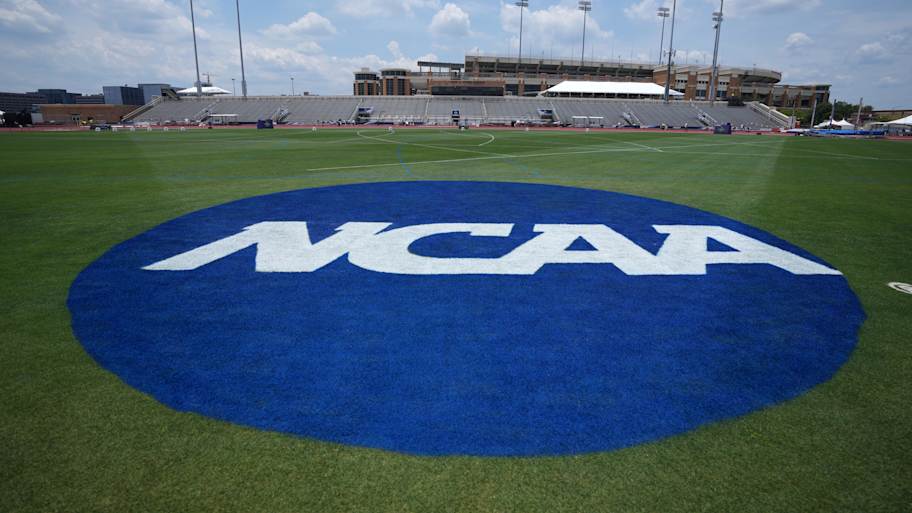BLOOMINGTON, Ind. – Since preliminary approval of the House settlement was given by U.S. District Judge Claudia Wilken in October, the affected NCAA schools have been proceeding as if the settlement was going to be rubber-stamped and the new rules it creates would be the lay of the land.
Wilken reminded the NCAA and power conference defendants Wednesday that preliminary approval means just that. She issued an order Wednesday that endorsed most of the terms of the House settlement, with one notable exception.
“Because the settlement is not fair and reasonable to the significant number of class members whose roster spots will be or have been taken away because of the immediate implementation of the settlement agreement, the Court cannot approve the settlement in its current form,” Wilken’s ruling said.
During the House settlement hearing on April 7, when Wilken heard objections from those affected by the case, including a major one on the impact of roster limits.
Under the settlement terms, scholarship limits were replaced by roster limits for each sport.
However, many sports had previously operated as partial-scholarship sports. Few athletes outside football and basketball get full-ride scholarships. So some sports had large rosters, but comparatively small scholarship limits, as those scholarships were parceled out among several athletes. Roster limits would eliminate roster spots for many athletes.
In addition, walk-ons on revenue sports like basketball and football were affected as limits were set that eliminated some of their roster spots.
Several athletes affected by these cuts raised objections during the April 7 hearing. Wilken proposed that the affected athletes could be “grandfathered in,” with roster limits phased in so these athletes wouldn’t lose their spots.
Last week, the NCAA filed a supplemental brief that said it would not implement phased-in roster limits, citing “disruption.”
On Wednesday, Wilken didn’t propose that roster limits be phased in; she made it central to approval of the House settlement itself.
Her ruling stated the following:
“Objectors have shown that the immediate implementation of the roster limits provisions of the settlement agreement has resulted or will result in harm to a significant number of members of the Injunctive Relief Settlement Class (1) who are on a roster but will be removed from the roster because of the immediate implementation of he settlement agreement; and (2) who were on a roster but were removed from the roster in the last several months because of the premature implementation of the settlement agreement,” Wilkens wrote.
“Those class members will be harmed because their roster spot will be or has been taken away as a result of the immediate implementation of the settlement agreement, yet they will be deemed to have released their injunctive and declaratory relief claims as part of the settlement agreement,” the ruling continued.
“As members of the Injunctive Relief Settlement Class, they do not have the right to opt out. That outcome is not fair to those class members, and that remains true even if other class members may benefit from the Injunctive Relief Settlement and a large number of members of the Damages Settlement Classes have filed claims under the settlement agreement,” Wilken continued.
Wilken went on to say that the court raised concerns about this problem on April 7, the proposed grandfathering of roster spots. After the NCAA and defendants filed a brief refusing to agree, Wilken ruled that the settlement cannot be approved in its current form.
However, Wilken gave the NCAA and power conference schools a route to approval. If they agree to modify the settlement to implement the phased-in roster limits, she will likely grant approval.
She gave the parties 14 days to present modifications to the court.
Wilken also admonished schools that began to implement the House settlement agreement before it was formally approved.
“The fact that the Court granted preliminary approval of the settlement should not have been interpreted as an indication that it was certain that the Court would grant final approval,” Wilken said. “One of the factors that courts must consider when determining whether to grant final approval of a settlement agreement is ‘the reaction of the class members’ to the agreement.”
Indiana is bound to the House settlement as a member of one of the power conferences that are co-defendants in the case with the NCAA.
The stakes are extremely high for the NCAA and the power conference schools.
If the House settlement is not approved, the original cases that were bound together by the settlement would go to trial. Most expect the NCAA would lose.
If the NCAA and its schools lost the House case, they would have been on the hook for $4 billion, which would be trebled by anti-trust laws to $12 billion. It would have crippled college athletics as we know it.
The NCAA and its member schools instead agreed to a $2.8 billion settlement paid to former college athletes. The settlement also dictates that 22% of power conference school revenue be dedicated to revenue sharing and that scholarship caps be replaced by roster limits. Most believe the athletic department spending cap will be approximately $20-million-to-$21 million per power conference school.
They also agreed to a clearinghouse that would grant approval of all NIL deals over $600 based on “fair market value.”
Colleges across Division I have been bracing for the House settlement changes. Now that the House settlement is in jeopardy? The ramifications could be seismic.
Related stories on Hoosiers On SI …
-
TODD’S TAKE:
House settlement roster limits victims have won Todd Golden over.
CLICK HERE.
-
INSTABILITY IS MOST FRUSTRATING ASPECT:
The transfer portal should exist and NIL money doesn’t bother me, but so many college athletes choose to make their experience transitory. The instability hurts college athletics.
CLICK HERE.
-
SEISMIC TIMES FOR COLLEGE ATHLETICS:
The House settlement and other changes have made this a seismic month for college athletics.
CLICK HERE.
This article was originally published on
www.si.com/college/indiana
as
Judge Wilken: House Settlement Will Be Denied If Roster Limits Aren’t Phased In
.


